Pontiff tells young people he is pinning his hopes on their efforts to safeguard environment and help the poor
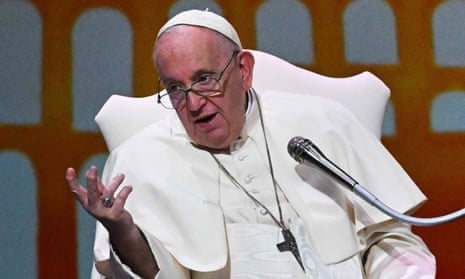
Pope Francis delivering his address in Assisi, Italy.
Photograph: Tiziana Fabi/AFP/Getty Images
Associated Press in Assisi
Sat 24 Sep 2022 17.41 BST
Pope Francis has called for courage in abandoning fossil fuels and lamented that older generations did not know how to protect the planet and secure peace.
The pope, who was visiting Assisi, the birthplace of his namesake saint who was close to nature, told young people on Saturday that he was pinning his hopes on their efforts in working to save the planet and to make the world’s economy more attentive to the poor.
During his brief visit to the hill town in central Italy, Francis spoke to a gathering of 1,000 young people, some of them young economists. Others are involved in efforts, including start-ups, focused on helping the environment.
The participants came from all over the world. Among them was a woman who recounted to the pope how she and her husband were helped to flee Afghanistan after the takeover of the Taliban last year by an organisation called The Economy of Francis, which is inspired by the life of St Francis, with his attention to the poor and others in need.
The pope said a world economy is needed that expresses “a new vision of the environment and the Earth”.
“There are many people, businesses and institutions that are making an ecological conversion. We need to go forward on this road and do more,” Francis said.
The pontiff cited an urgent need to discuss models of development. “Now is the time for new courage in abandoning fossil fuels to accelerate the development of zero- or positive-impact sources of energy,” Francis said.
He told the young people: “Our generation has left you with a rich heritage, but we have not known how to protect the planet and are not securing peace.”
He lamented a lack of “creativity, optimism, enthusiasm”, and told young people that “we are grateful to God that you are here. Not only will you be there tomorrow, but you are here today.”
Pope Francis has called for courage in abandoning fossil fuels and lamented that older generations did not know how to protect the planet and secure peace.
The pope, who was visiting Assisi, the birthplace of his namesake saint who was close to nature, told young people on Saturday that he was pinning his hopes on their efforts in working to save the planet and to make the world’s economy more attentive to the poor.
During his brief visit to the hill town in central Italy, Francis spoke to a gathering of 1,000 young people, some of them young economists. Others are involved in efforts, including start-ups, focused on helping the environment.
The participants came from all over the world. Among them was a woman who recounted to the pope how she and her husband were helped to flee Afghanistan after the takeover of the Taliban last year by an organisation called The Economy of Francis, which is inspired by the life of St Francis, with his attention to the poor and others in need.
The pope said a world economy is needed that expresses “a new vision of the environment and the Earth”.
“There are many people, businesses and institutions that are making an ecological conversion. We need to go forward on this road and do more,” Francis said.
The pontiff cited an urgent need to discuss models of development. “Now is the time for new courage in abandoning fossil fuels to accelerate the development of zero- or positive-impact sources of energy,” Francis said.
He told the young people: “Our generation has left you with a rich heritage, but we have not known how to protect the planet and are not securing peace.”
He lamented a lack of “creativity, optimism, enthusiasm”, and told young people that “we are grateful to God that you are here. Not only will you be there tomorrow, but you are here today.”
Pope Francis: Love for the poor and for the Earth must go hand in hand
Cindy Wooden - Catholic News Service
The project is named in honor of St. Francis of Assisi, known for his love of the poor and of creation, and has been supported by the Dicastery for Promoting Integral Human Development.
At the end of the meeting, participants gave Pope Francis a pact, promising to work for “an economy of peace and not of war; an economy that counteracts the proliferation of weapons, especially the most destructive ones; an economy that cares for creation and does not plunder it; an economy at the service of the person, the family and life, respectful of every woman, man, child, the elderly and especially the frail and vulnerable.”
The pope encouraged the young people also to dedicate themselves to preserving and increasing their “spiritual capital,” the faith and values that will give meaning to their studies, their work and, especially, to their lives.
After all, he said, “human beings, created in the image and likeness of God, are seekers of meaning before being seekers of material goods,” but the modern world is losing sight of “this essential kind of capital, accumulated over centuries by religions, wise traditions and popular piety.”
Inspired by St. Francis of Assisi, he said, a new economic model must be “an economy of friendship with the earth and an economy of peace. It is a question of transforming an economy that kills into an economy of life, in all its aspects.”
Love for the poor and for the Earth must go hand in hand, he said. But it will require sacrifice and radical change.
“The earth is burning today,” he said. “If we speak of ecological transition but remain in the economic paradigm of the 20th century, which plundered the earth and its natural resources, then the strategies we adopt will always be insufficient.”
“We human beings, in these last two centuries, have grown at the expense of the earth. We have often plundered to increase our own well-being, and not even the well-being of all,” Pope Francis told the young people. “Now is the time for new courage in abandoning fossil fuels to accelerate the development of zero- or positive-impact sources of energy.”
When the pope arrived at the gathering, young adults from Italy, Benin, Argentina, Thailand, Kenya, Afghanistan and Poland shared their stories and projects — from creating farms and educating farmers in regenerative agriculture to creating small businesses or rallying other young people to convince companies to stop producing single-use plastic bottles and bags.
Andrea, a young Italian in jail for murder but given permission to attend the Assisi event, spoke about his digital marketing work through a prison-based cooperative, which provides remote workers for companies as well as a workshop for repairing espresso machines for coffee bars.
“I am not an economist, but it seems quite logical to me to think that prison, in order to be a good investment for society, must achieve concrete results, and these are basically two: security and zero recidivism,” Andrea said. “People coming out of prison must be changed and transformed from a ‘cost item’ to a ‘resource’ for society.”
Concluding his speech with a prayer, Pope Francis asked God to forgive the older generation “for having damaged the earth, for not having respected Indigenous cultures, for not having valued and loved the poorest of the poor, for having created wealth without communion.”
He prayed that the Holy Spirit would continue to inspire the young people and that God would “bless them in their undertakings, studies and dreams.”
“Support their longing for the good and for life, lift them up when facing disappointments due to bad examples, do not let them become discouraged but instead may they continue on their path,” the pope prayed. “You, whose only begotten Son became a carpenter, grant them the joy of transforming the world with love, ingenuity and hands.”
Listen: A young American economist speaks about The Economy of Francesco
Cindy Wooden - Catholic News Service
Pope Francis reacts as he attends a meeting in Assisi, Italy, Sept. 24, 2022. The pope led a meeting with young economists, entrepreneurs, financial advisers, scholars and scientists who have been working for two years on the Economy of Francesco project.
(CNS photo/Remo Casilli, Reuters)
ROME (CNS) — Acknowledging how young people have been given a world marked by inequality, injustice, war and environmental degradation, Pope Francis urged those looking for solutions to be concrete, to involve the poor, to care for the Earth and to create jobs.
“Our generation has left you with a rich heritage, but we have not known how to protect the planet and are not securing peace,” Pope Francis told some 1,000 young adult economists, entrepreneurs, financial advisers, students, scholars and scientists from 120 countries at the closing session of the Economy of Francesco event in Assisi.
The gathering Sept. 22-24 originally was planned for March 2020 but was postponed because of the COVID-19 pandemic. Instead, the young people spent more than two years working online with older experts, studying agriculture and employment, peace and ecology and finance and development in the search for ways to make the economy better for more people and for the environment.
ROME (CNS) — Acknowledging how young people have been given a world marked by inequality, injustice, war and environmental degradation, Pope Francis urged those looking for solutions to be concrete, to involve the poor, to care for the Earth and to create jobs.
“Our generation has left you with a rich heritage, but we have not known how to protect the planet and are not securing peace,” Pope Francis told some 1,000 young adult economists, entrepreneurs, financial advisers, students, scholars and scientists from 120 countries at the closing session of the Economy of Francesco event in Assisi.
The gathering Sept. 22-24 originally was planned for March 2020 but was postponed because of the COVID-19 pandemic. Instead, the young people spent more than two years working online with older experts, studying agriculture and employment, peace and ecology and finance and development in the search for ways to make the economy better for more people and for the environment.
“Our generation has left you with a rich heritage, but we have not known how to protect the planet and are not securing peace.”
The project is named in honor of St. Francis of Assisi, known for his love of the poor and of creation, and has been supported by the Dicastery for Promoting Integral Human Development.
At the end of the meeting, participants gave Pope Francis a pact, promising to work for “an economy of peace and not of war; an economy that counteracts the proliferation of weapons, especially the most destructive ones; an economy that cares for creation and does not plunder it; an economy at the service of the person, the family and life, respectful of every woman, man, child, the elderly and especially the frail and vulnerable.”
The pope encouraged the young people also to dedicate themselves to preserving and increasing their “spiritual capital,” the faith and values that will give meaning to their studies, their work and, especially, to their lives.
The pope encouraged the young people also to dedicate themselves to preserving and increasing their “spiritual capital.”
After all, he said, “human beings, created in the image and likeness of God, are seekers of meaning before being seekers of material goods,” but the modern world is losing sight of “this essential kind of capital, accumulated over centuries by religions, wise traditions and popular piety.”
Inspired by St. Francis of Assisi, he said, a new economic model must be “an economy of friendship with the earth and an economy of peace. It is a question of transforming an economy that kills into an economy of life, in all its aspects.”
Love for the poor and for the Earth must go hand in hand, he said. But it will require sacrifice and radical change.
“The earth is burning today,” he said. “If we speak of ecological transition but remain in the economic paradigm of the 20th century, which plundered the earth and its natural resources, then the strategies we adopt will always be insufficient.”
“We human beings, in these last two centuries, have grown at the expense of the earth. We have often plundered to increase our own well-being, and not even the well-being of all.”
“We human beings, in these last two centuries, have grown at the expense of the earth. We have often plundered to increase our own well-being, and not even the well-being of all,” Pope Francis told the young people. “Now is the time for new courage in abandoning fossil fuels to accelerate the development of zero- or positive-impact sources of energy.”
When the pope arrived at the gathering, young adults from Italy, Benin, Argentina, Thailand, Kenya, Afghanistan and Poland shared their stories and projects — from creating farms and educating farmers in regenerative agriculture to creating small businesses or rallying other young people to convince companies to stop producing single-use plastic bottles and bags.
Andrea, a young Italian in jail for murder but given permission to attend the Assisi event, spoke about his digital marketing work through a prison-based cooperative, which provides remote workers for companies as well as a workshop for repairing espresso machines for coffee bars.
“People coming out of prison must be changed and transformed from a ‘cost item’ to a ‘resource’ for society.”
“I am not an economist, but it seems quite logical to me to think that prison, in order to be a good investment for society, must achieve concrete results, and these are basically two: security and zero recidivism,” Andrea said. “People coming out of prison must be changed and transformed from a ‘cost item’ to a ‘resource’ for society.”
Concluding his speech with a prayer, Pope Francis asked God to forgive the older generation “for having damaged the earth, for not having respected Indigenous cultures, for not having valued and loved the poorest of the poor, for having created wealth without communion.”
He prayed that the Holy Spirit would continue to inspire the young people and that God would “bless them in their undertakings, studies and dreams.”
“Support their longing for the good and for life, lift them up when facing disappointments due to bad examples, do not let them become discouraged but instead may they continue on their path,” the pope prayed. “You, whose only begotten Son became a carpenter, grant them the joy of transforming the world with love, ingenuity and hands.”
Listen: A young American economist speaks about The Economy of Francesco
Pope Francis Wants Us To Give Up on Fossil Fuels, Says Now's the Time for Eco-Conversion
by Florin Amariei
Back in 2019, Pope Francis intended to give young people who are ready to transform the economy a place to speak their minds, meet others with similar interests, and discuss various opportunities for a fossil fuel-free future. To turn this into reality, the Pontiff supported the creation of the Economy of Francesco (EoF). The name given to this event isn’t related to the Pope but to the Saint Francis of Assisi – the spiritual patron of the Italian city with the same name.
At the 2022 edition of EoF, young minds from various parts of the globe met in Italy to discuss environmental-related issues, achievements, and proposals. After listening to everyone, the Pope took the microphone and said some interesting things.
The Pontiff argued that the economy should be taken back to its roots, “to the work done by human beings.” This remark comes in contradiction with the industrial trend that replaces people with robots. But it is a valid statement – the more fairly-paid employees there are, the more money individuals and families will have.A greener future
But the most interesting part of the Pope’s statement revolves around the need to ditch fossil fuels. His Holiness said that the world should abandon polluters and concentrate on making energy that has no impact on the environment.
He also argued in favor of moving forward with “an ecological conversion” that should make businesses and people cut down on their carbon footprint and recycle more.
The Pope also admitted that his generation created a rich heritage for today’s youth, but they did not know how “to protect the planet and secure peace.”
But is the Pope right? Should we ditch fossil fuels for good? Let’s find out.Fossil fuels are bad, but we must not forget their role
Our world has been powered by fossil fuels for over a century, but the first time someone used coal as a source of energy can be dated back to over 4,000 years ago. People living in the area that’s China today noticed the black like-rock thing that burned easily and started using it. Some archaeologists even claim that cavemen used coal for heating without knowing what exactly it was. But during the 1200s, coal usage spread to Europe and other parts of the world.
However, people kept using coal to ease the process of making things out of metals. That is until the industrial revolution came around and the steam engine was created by James Watt. After the 1700s, coal remained an important resource for the British and helped them develop into an enormous empire.
The U.S. used coal as well. Americans made steel manufacturing easier thanks to coal and powered steam engines with it. But the first time coal was used for electricity can be dated back to the 1880s, according to a study published by the Department of Energy.
Coal isn’t the only fossil fuel we continue to use even today. Gas, natural gas, crude oil, kerosene, petroleum derivatives, and others like them are what made some countries more powerful and transformed our world. But coal was always at the epicenter of many health issues for humans. Burning coal leads to severe air pollution and has been known to cause heart problems, brain damage, asthma, and even cancer.Giving up on gas won’t be easy
Similarly, oil and its byproducts have caused many global concerns. On the one hand, producers and refiners have one of the largest carbon footprints worldwide and have been involved in catastrophic natural accidents like Kolva River Spill or the Atlantic Empress Spill when millions of gallons of oil have been into oceans. Most recently, whistleblowers revealed that “bilge dumping” is often happening in the seafaring industry, and toxic liquids are released into the world’s oceans by virtually any diesel-powered vessel.
On the other hand, gas, diesel, kerosene, and other oil byproducts keep us moving and our economies going. We rely heavily on having enough gallons of refined oil, and the best proof comes from this year’s problems – the current U.S. administration was forced to release millions of barrels from the strategic reserve to keep inflation from spiraling out of control.
Even Tesla CEO Elon Musk called twice on the governments to make sure oil prices aren’t going to be artificially increased by decreasing output.
And, on top of all this, automakers like Porsche or Mazda have been noticed on multiple occasions saying that internal combustion engine bans aren’t the right way to move forward. Now, with the price of electricity going up and an unstable international landscape, we can understand why the transition to greener sources of energy can’t happen at once. It’s impossible to do it without hurting many people in the process.
But we must move forward. Battery and fuel cell electric vehicles are the future. Transportation will have to be revamped and it must be among the first things that change because it accounts for 27% of total U.S. greenhouse gas emissions, according to the Environmental Protection Agency. In the EU, the European Environment Agency says road transport is responsible for 72% of the total transport greenhouse gas emissions.
Now, the Pope wants us to slowly give up on them all while the young build a new and healthy economy. Will EVs and renewable energy play a major role in this transition? We’ll see. What’s certain now is that a major change awaits us. If it’s going to be for the better, well… That’s up to everyone!
At the end of the day, Pope Francis is right – we must focus on a new, more sustainable, and fossil fuel-free economy. But in doing so, we must not forget who will be hurt by these changes.
At the 2022 edition of EoF, young minds from various parts of the globe met in Italy to discuss environmental-related issues, achievements, and proposals. After listening to everyone, the Pope took the microphone and said some interesting things.
The Pontiff argued that the economy should be taken back to its roots, “to the work done by human beings.” This remark comes in contradiction with the industrial trend that replaces people with robots. But it is a valid statement – the more fairly-paid employees there are, the more money individuals and families will have.A greener future
But the most interesting part of the Pope’s statement revolves around the need to ditch fossil fuels. His Holiness said that the world should abandon polluters and concentrate on making energy that has no impact on the environment.
He also argued in favor of moving forward with “an ecological conversion” that should make businesses and people cut down on their carbon footprint and recycle more.
The Pope also admitted that his generation created a rich heritage for today’s youth, but they did not know how “to protect the planet and secure peace.”
But is the Pope right? Should we ditch fossil fuels for good? Let’s find out.Fossil fuels are bad, but we must not forget their role
Our world has been powered by fossil fuels for over a century, but the first time someone used coal as a source of energy can be dated back to over 4,000 years ago. People living in the area that’s China today noticed the black like-rock thing that burned easily and started using it. Some archaeologists even claim that cavemen used coal for heating without knowing what exactly it was. But during the 1200s, coal usage spread to Europe and other parts of the world.
However, people kept using coal to ease the process of making things out of metals. That is until the industrial revolution came around and the steam engine was created by James Watt. After the 1700s, coal remained an important resource for the British and helped them develop into an enormous empire.
The U.S. used coal as well. Americans made steel manufacturing easier thanks to coal and powered steam engines with it. But the first time coal was used for electricity can be dated back to the 1880s, according to a study published by the Department of Energy.
Coal isn’t the only fossil fuel we continue to use even today. Gas, natural gas, crude oil, kerosene, petroleum derivatives, and others like them are what made some countries more powerful and transformed our world. But coal was always at the epicenter of many health issues for humans. Burning coal leads to severe air pollution and has been known to cause heart problems, brain damage, asthma, and even cancer.Giving up on gas won’t be easy
Similarly, oil and its byproducts have caused many global concerns. On the one hand, producers and refiners have one of the largest carbon footprints worldwide and have been involved in catastrophic natural accidents like Kolva River Spill or the Atlantic Empress Spill when millions of gallons of oil have been into oceans. Most recently, whistleblowers revealed that “bilge dumping” is often happening in the seafaring industry, and toxic liquids are released into the world’s oceans by virtually any diesel-powered vessel.
On the other hand, gas, diesel, kerosene, and other oil byproducts keep us moving and our economies going. We rely heavily on having enough gallons of refined oil, and the best proof comes from this year’s problems – the current U.S. administration was forced to release millions of barrels from the strategic reserve to keep inflation from spiraling out of control.
Even Tesla CEO Elon Musk called twice on the governments to make sure oil prices aren’t going to be artificially increased by decreasing output.
And, on top of all this, automakers like Porsche or Mazda have been noticed on multiple occasions saying that internal combustion engine bans aren’t the right way to move forward. Now, with the price of electricity going up and an unstable international landscape, we can understand why the transition to greener sources of energy can’t happen at once. It’s impossible to do it without hurting many people in the process.
But we must move forward. Battery and fuel cell electric vehicles are the future. Transportation will have to be revamped and it must be among the first things that change because it accounts for 27% of total U.S. greenhouse gas emissions, according to the Environmental Protection Agency. In the EU, the European Environment Agency says road transport is responsible for 72% of the total transport greenhouse gas emissions.
Now, the Pope wants us to slowly give up on them all while the young build a new and healthy economy. Will EVs and renewable energy play a major role in this transition? We’ll see. What’s certain now is that a major change awaits us. If it’s going to be for the better, well… That’s up to everyone!
At the end of the day, Pope Francis is right – we must focus on a new, more sustainable, and fossil fuel-free economy. But in doing so, we must not forget who will be hurt by these changes.
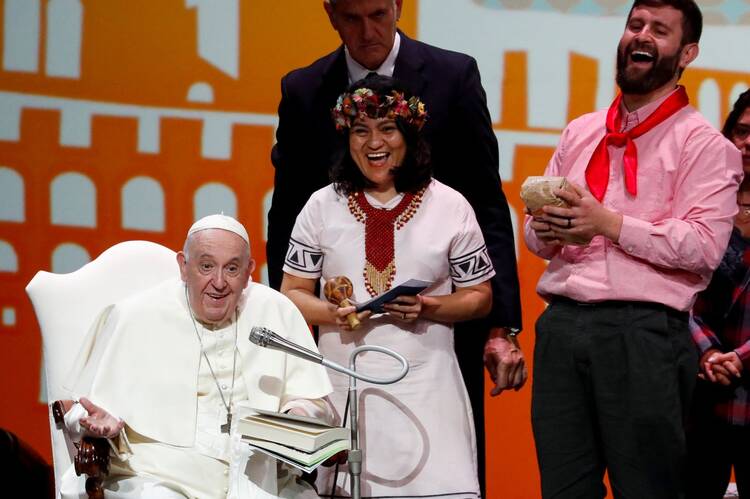

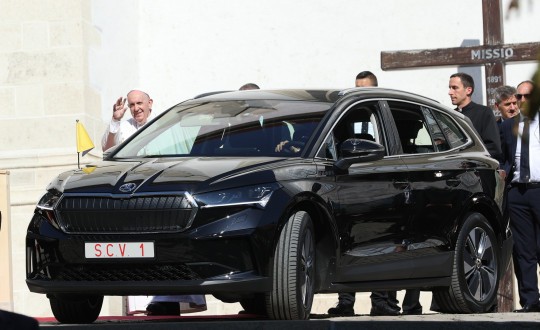
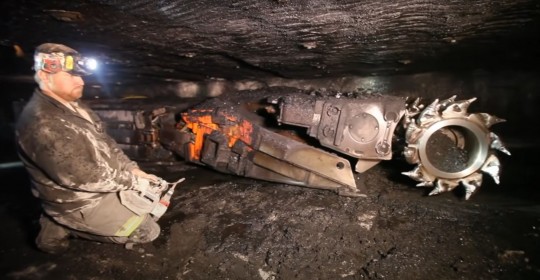
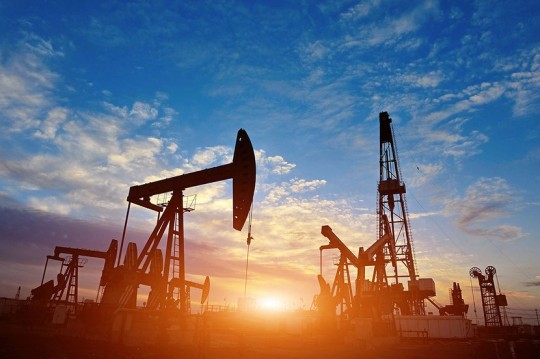

No comments:
Post a Comment